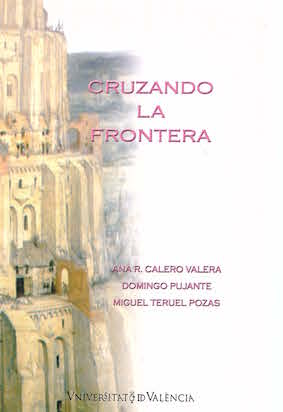Vida entre dos culturas en la Alemania del siglo XVIII: Moses Mendelssohn
DOI:
https://doi.org/10.7203/qf-elit.v12i0.5022Paraules clau:
prejudicis, antisemitisme, fronteres, filosofia, tolerància Resum
Resum
Una de les minories més importants a Europa i a Alemanya des de l'Edat Mitjana era la minoria jueva que, a causa de la seva religió, va ser víctima de tota classe de persecucions i humiliacions. En l'Alemanya del XVIII la situació dels jueus era molt complicada, aquests no tenien categoria de ciutadans, eren obligats a viure en ghettos i no se'ls permetia barrejar-se amb la societat cristiana. Dins d'aquests dos àmbits culturals (jueu i cristià) es va desenvolupar la vida del filòsof i escriptor jueu Moses Mendelssohn (1729-1786), qui després d'emigrar en 1743 sense recursos a Berlín va aconseguir de manera autodidacta augmentar la seva formació i convertir-se en un famós filòsof i escriptor, establint contacte amb altres erudits cristians i donant d'aquesta manera un pas avanci cap a la tolerància.
 Descàrregues
Descàrregues
Descàrregues
Publicades
Com citar
-
Resum279
-
PDF (Español)3261
Número
Secció
Llicència
 Este obra está bajo una licencia de Creative Commons Reconocimiento-NoComercial-SinObraDerivada 4.0 Internacional.
Este obra está bajo una licencia de Creative Commons Reconocimiento-NoComercial-SinObraDerivada 4.0 Internacional.
Tots els documents inclosos a OJS són d'accés lliure i propietat dels seus autors i/o institucions editores, i per tant, qualsevol acte de reproducció, comercialització, comunicació pública o transformació total o parcial necessita el consentiment exprés i escrit d'aquests.
________
Authors who publish with this journal agree to the following terms:
- Authors retain copyright and grant the journal right of first publication with the work simultaneously licensed under a Creative Commons Attribution License that allows others to share the work with an acknowledgement of the work's authorship and initial publication in this journal.
- Authors are able to enter into separate, additional contractual arrangements for the non-exclusive distribution of the journal's published version of the work (e.g., post it to an institutional repository or publish it in a book), with an acknowledgement of its initial publication in this journal.
- Authors are permitted and encouraged to post their work online (e.g., in institutional repositories or on their website) prior to and during the submission process, as it can lead to productive exchanges, as well as earlier and greater citation of published work (See The Effect of Open Access).




